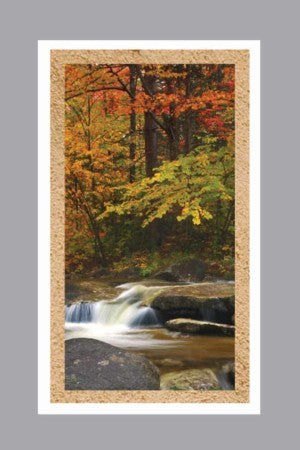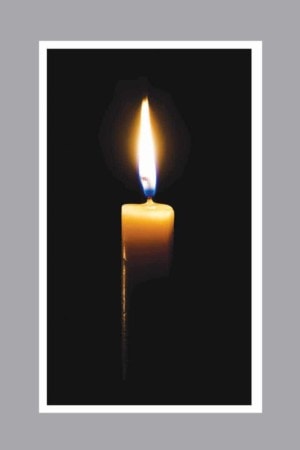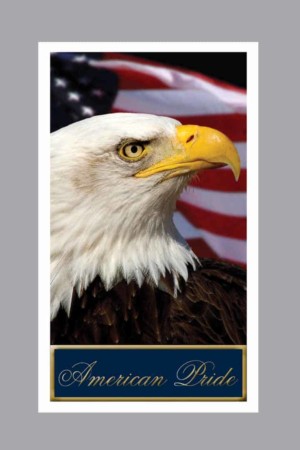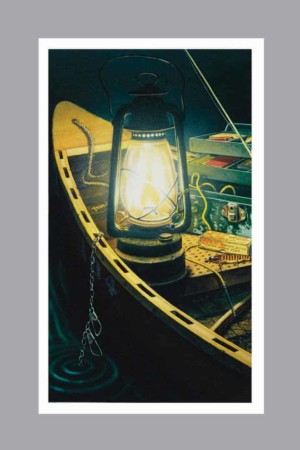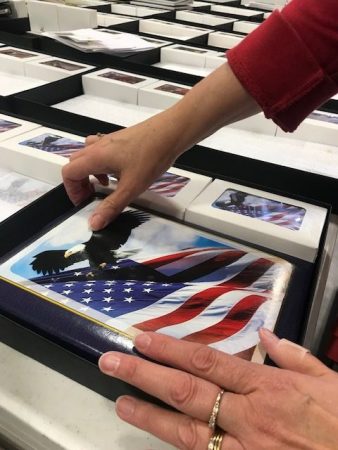What Are Funeral Cards?
Funeral Stationery at Glance
Funeral cards, as well as funeral thank you cards, memorial programs, prayer cards, and funeral guest books, are meaningful mementos of a lost loved one.
If you’re planning for your funeral wishes or arranging a funeral service for a loved one, you may have noticed funeral stationery being offered in memorial packages at funeral homes. But what exactly does such specialized stationery encompass?
Typically it includes funeral programs, prayer cards, guest books, and thank you cards. However, one of the most common questions about this specialized stationery is why do I need funeral cards for a funeral? The answer is age-old.
As with any monumental occasion in our lives, especially occasions when and where friends and relatives may travel from far away, give gifts, send flowers, provide encouragement, make donations, or even just lend a helping hand, it is customary to send notes of thanks.
Why Use Funeral Cards
Funeral acknowledgments or funeral cards are a common piece of stationery frequently offered by funeral homes, sometimes in curated packages.
Though deciding on the details of funeral packages in such a stressful time may be difficult, it’s worth noting why we use funeral cards. Notably, it’s customary to send thank you notes because, throughout a family’s grieving process, friends and loved ones often avail themselves through providing support and help during a very sad and arduous time.
It’s respectful to reciprocate and acknowledge such kindnesses through the customary action of sending a thank you card. Purchasing curated funerary stationery is one way to make this difficult time a bit more streamlined.
In the aftermath of a funeral, you may wish to acknowledge those who may have sent a gift or show your gratitude to those people who went beyond the call of duty to lend a helping hand.
One of the most meaningful ways to do this is by sending a special acknowledgment or thank you card. You may wish to send an acknowledgment to a friend or relative who sent flowers or a sympathy gift, donated to a designated charity, helped to facilitate funeral arrangements, or even prepared a meal. The simplest and most thoughtful way to acknowledge these kind gestures is to send a funeral card.
Most funeral homes offer funeral thank you cards to send to guests following a memorial service. However, selecting the stationery you’ll use to express your deepest gratitude is the easy part. Coming up with the right words to meaningfully acknowledge your cherished guest(s) could be a bit more challenging. Through the difficulty of losing a loved one, sometimes finding the right words may seem impossible.
Below you will find a few useful suggestions of what to include and how you might format the note in a funeral thank you card.
What To Include In A Funeral Card?
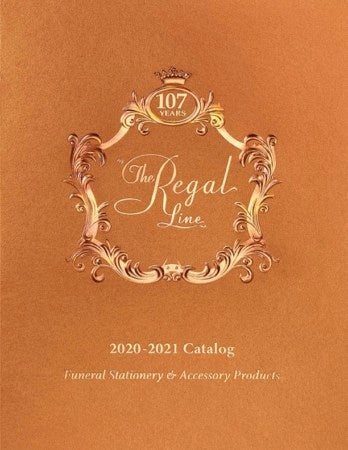
To begin, you’ll want to select stationery that is evocative of your loved one; something tasteful and simple that speaks to the character of your lost loved one is what you should aim for. But most importantly, do not stress. A simple acknowledgment and expression of appreciation will certainly be cherished and appreciated by whoever receives your card.
Try your best to express your gratitude in your most sincere words. Be yourself and acknowledge your gratitude for the kindness others have shown you during a very difficult time. See our suggestions below for some ideas for wording your funeral thank you card if you’re having trouble composing your message.
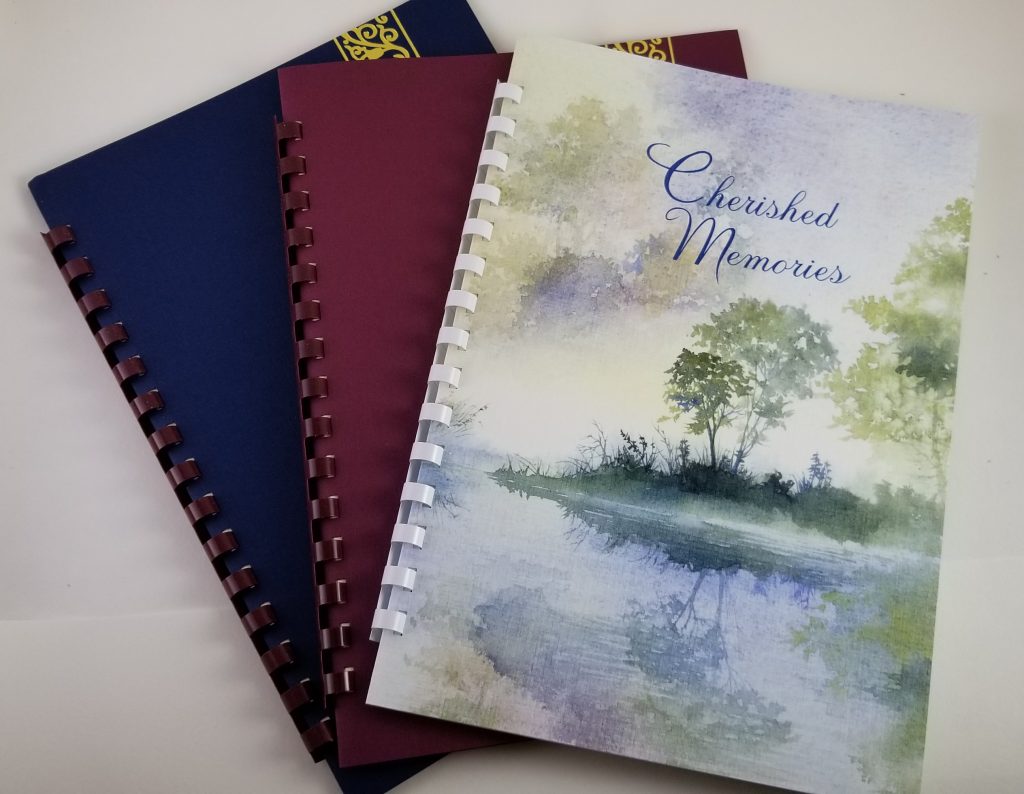
Ideas of what to include in a funeral card?
• Begin with a greeting. The most commonly accepted way to begin a thank you card, or any note for that matter, is with the phrasing “Dear.” However, you could always begin with just the recipient’s name. Either way is acceptable, but just be sure to spell his/her name correctly.
• Convey your gratitude. Be sure to express gratitude as sincerely as you can. Use phrasing like “thank you,” “I/we appreciate,” “I/we are so grateful,” or “your kindness is so thoughtful.”
• Add specific details. A good way to express thanks for another’s kind gesture is to express it in a way that specifies the exact kindness for which you’re thankful. In other words, be sure to acknowledge the exact item or gesture for which you are thankful.
For example: “It was so thoughtful of you to bring us your delicious ziti for dinner. The comfort of a home-cooked meal can’t be understated” or “We are so grateful that you helped us through such a difficult time by caring for our pets while we were away.”
If you are thanking a loved one for a gift, you might describe how you’re using the gift. For instance, “We are so grateful for the beautiful picture frame. We have used it to hang [insert loved one’s name] picture and seeing it every day brings us such comfort and joy.”
Taking the time to specify that the particular gift or gesture was appreciated and how/why will make your card recipient feel very appreciated.
• Include a forward-thinking statement. This is a nice opportunity to look forward to the next, hopefully happier, time you’ll see each other. You might say something like “I look forward to seeing you soon under happier circumstances” or “Let’s get together for coffee soon. I’d love to catch up with you.”
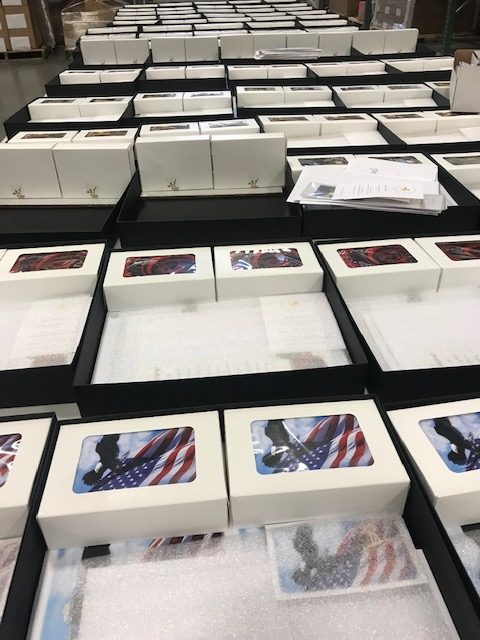
• Restate your thanks. Close your message with a reiteration of your thanks, ideally in other words than you initially used. You could finish with something like, “Again, we can’t thank you enough for your thoughtfulness and kindness.”
• Include a sign-off. Some appropriate sign-offs include “Many thanks,” “With gratitude,” “With thanks,” “Thankfully,” or “Gratefully yours.” Regardless of the phrasing you choose, just be sure to sign-off in a way that is appropriate to your thankful sentiment.
• Handwritten is best. The last point to consider is that it’s always more personal to handwrite your messages of thanks than to mass print cards. Although handwriting can be time-consuming, it’s certainly the nicest way to show that you personally acknowledge the time someone has given of themselves to you by giving an extra few minutes of your time to handwrite your notes.
The detail of a handwritten note will not go unnoticed.
Importance Of Funeral Cards
Funeral cards, which may not be the most significant consideration when planning a funeral, are very important. During one of the most difficult times in our lives, our circle of loved ones surrounds us, embraces us, and lifts us. There is no way more appropriate or thoughtful for expressing our thanks than in writing a formal thank you card.
There is no event, including a funeral, or kind gesture that doesn’t deserve thoughtful appreciation. Your thank you messages don’t have to be lengthy; short and sweet will do the job. A few lines of sincere gratitude will certainly make the card recipient feel appreciated for the kindness they’ve given you.
Choose Regal Line
The Regal Line is a family owned funeral stationery manufacturer that has been producing stationery for over 108 years in the United States. Unlike mass produced funeral stationery products produced overseas, each Regal Line stationery item is produced by hand and individually checked for quality to provide the family the highest quality in stationery products available.
The greatest example of this quality is the funeral guest books designed and manufactured by The Regal Line.

